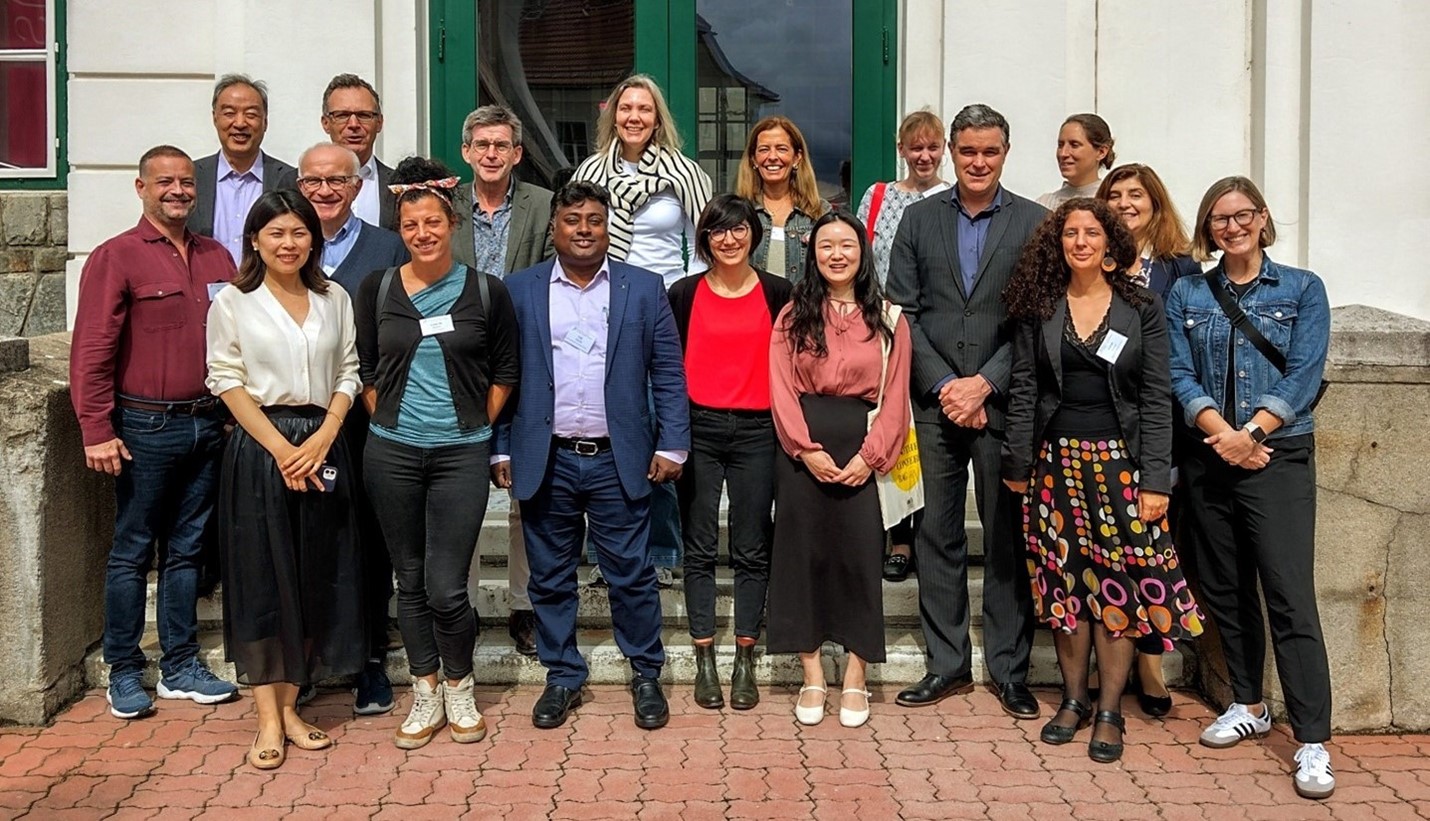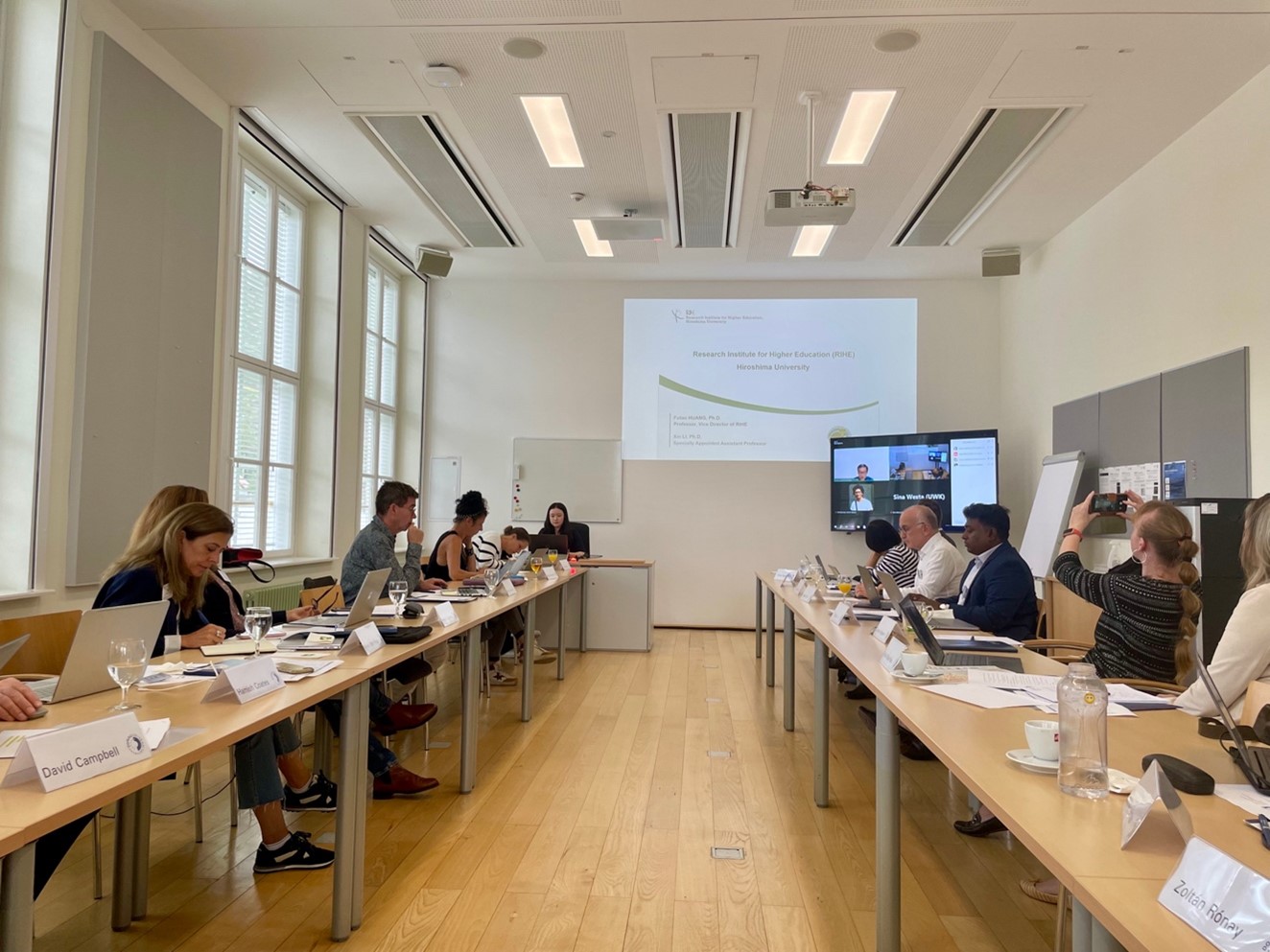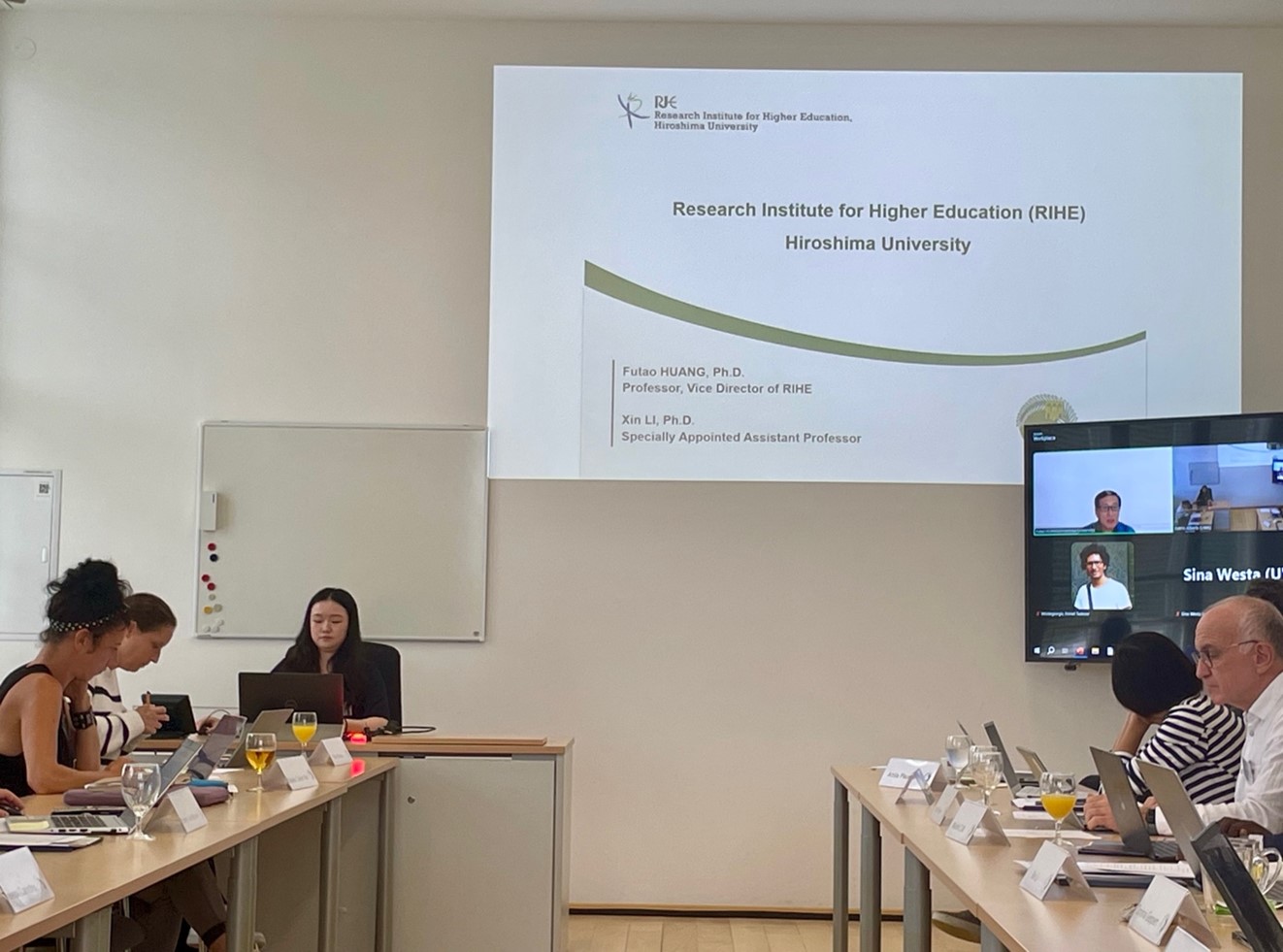Dates: September 9–10, 2024
Venue: University for Continuing Education Krems
Contributors: Professor Futao Huang (online), Dr. Xin LI (on site)
Report:
Professor Futao Huang and Specially Appointed Assistant Professor Dr. Xin Li from the Research Institute for Higher Education (RIHE) were invited to participate in the inaugural event of the Global Observatory of Higher Education Changes (GOHEC), held on September 9th and 10th, 2024, at the University for Continuing Education Krems in Austria. This key conference brought together leading scholars from institutions worldwide to initiate a comprehensive dialogue on the evolving challenges and trends in higher education.
The GOHEC, established to serve as a vital resource for aggregating and analyzing qualitative and quantitative data, aims to facilitate in-depth research and foster robust international collaborations that address the pressing issues faced by educational systems worldwide. The observatory brought together 26 leading academics in the field of higher education from 12 renowned institutions, including University of Georgia, Australian National University, University of Twente, University of Aveiro, Beijing Normal University, and Hiroshima University. This event was conducted both online and in person, accommodating 5 scholars virtually and 21 on-site. Participants represented a diverse array of 12 countries, including the United States, South Africa, India, Japan, Hungary, Italy, the Netherlands, Australia, Croatia, Portugal, China, and Norway.
Professor Huang participated online, contributing remotely to the discussions, while Dr. Li attended in person, underscoring RIHE’s active engagement in global academic dialogue. The event kicked off with a welcome speech by Professor Attila Pausits and an overview of GOHEC’s objectives by Professor Isak Frumin. Afterwards, Professor Huang and Dr. Li delivered a joint presentation that introduced RIHE’s research focus and global collaborations. Additionally, Dr. Li notably engaged in discussions on the third mission and governance in higher education during thematic working group sessions.
On the second day of the event, discussions shifted towards exploring potential collaborative frameworks. Dr. Li highlighted the opportunities through the Japan Society for Promoting Scientific Research (JSPS) for international joint research. The event concluded with the signing of a Memorandum of Cooperation, solidifying the commitment of the participants to enhance global higher education research and cooperation.
This seminal event not only highlighted RIHE’s leadership in international higher education discussions but also underscored the importance of ongoing global collaboration in tackling the complex challenges facing higher education systems around the world. The event affirmed the crucial role of international dialogue in tackling the multifaceted issues confronting higher education today, positioning RIHE at the forefront of these global efforts.
About the Department of Higher Education Research, the University for Continuing Education Krems:
The University for Continuing Education Krems stands as the leading public university dedicated to continuing education in Europe. The university leverages its expertise in teaching and research to address societal challenges and is dedicated to updating and expanding its course offerings to align with current and future needs. With approximately 8,000 students enrolled and more than 30,000 alumni, the university is recognized for its commitment to innovation and maintains a quality seal from the Agency for Quality Assurance and Accreditation Austria (AQ Austria).
Within this vibrant academic environment, the Department for Higher Education Research serves as a pivotal center for the evidence-based advancement of higher education. The department focuses on critical areas such as personnel and organizational development, governance, and the broader third mission of academic institutions concerning lifelong learning. By examining these themes across individual, institutional, and systemic levels, the department extends its impact beyond Austria to influence the European Higher Education Area and beyond. This is further complemented by robust national and international collaborations with higher education bodies, research organizations, and policymakers. The department’s leadership in co-founding and coordinating the “Austrian Network for Higher Education Research” underscores its central role in shaping higher education research across the region.



